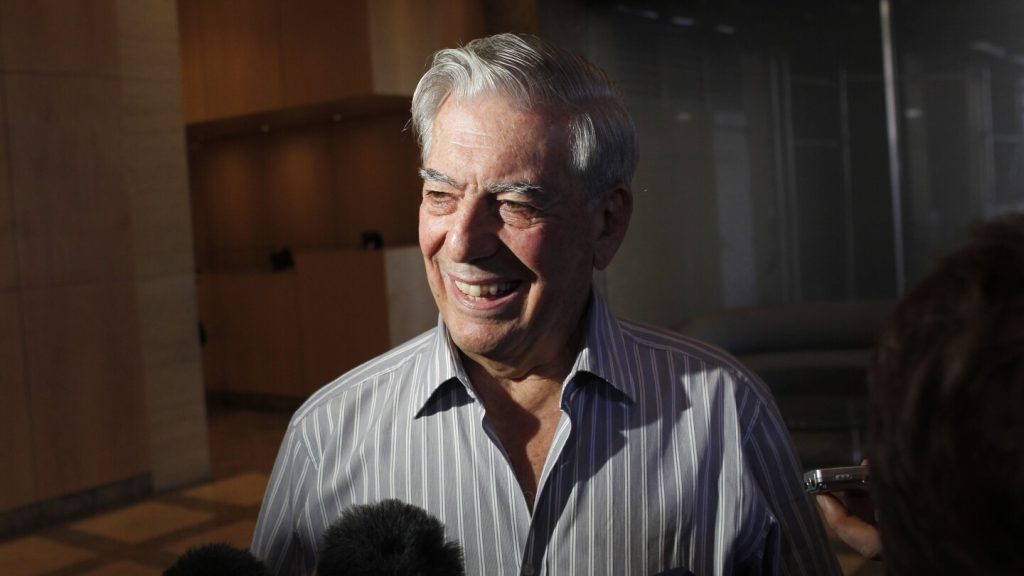LIMA, Peru (AP) — Renowned Peruvian novelist Mario Vargas Llosa, a Nobel Prize winner and a prominent figure in Latin American literature, passed away on Sunday at the age of 89.
Vargas Llosa was a prolific writer and essayist known for acclaimed works like “The Time of the Hero” (La Ciudad y los Perros) and “Feast of the Goat.” He received numerous accolades, including the Nobel Prize in Literature in 2010.
In a letter shared by his son Álvaro on X, Vargas Llosa’s children, Álvaro, Gonzalo, and Morgana, expressed their profound sadness at his passing in Lima, where he died peacefully surrounded by family. They noted that while his loss would be felt by many, his legacy of literature would endure.
His lawyer and close friend, Enrique Ghersi, confirmed the news to The Associated Press and reflected on Vargas Llosa’s joy during his last birthday on March 28, celebrated with friends and family. Ghersi highlighted the writer’s long and fulfilling life.
Literary Breakthrough and Influence
Vargas Llosa debuted in 1959 with his story collection “The Cubs and Other Stories” (Los Jefes), but he rose to prominence in 1963 with “The Time of the Hero,” which drew from his experiences at a military academy in Peru. The military’s outrage led to copies being burned, with officials labeling Vargas Llosa a communist.
Subsequent works, like “Conversation in the Cathedral” (Conversación en la Catedral) in 1969, solidified his status as a key figure in the literary “Boom” of the 1960s and 1970s, alongside contemporaries like Gabriel García Márquez and Carlos Fuentes.
Early Life and Education
Born Jorge Mario Pedro Vargas Llosa on March 28, 1936, in Arequipa, Peru, he faced challenges early in life. His father abandoned the family before his birth, prompting his mother to relocate them to Bolivia for a time. Vargas Llosa described his childhood as “somewhat traumatic” yet spoiled by his mother and grandmother.
His father, a strict disciplinarian, eventually reunited with the family, but Vargas Llosa’s chaotic experiences at the military academy deeply impacted him and inspired some of his later works. He studied literature and law at Peru’s San Marcos University, ultimately favoring literature despite familial pressures.
Political Views and Literary Legacy
Throughout his career, Vargas Llosa transitioned from his early communist beliefs to a strong advocate for personal and economic liberties, often critiquing leftist leaders in Latin America. He famously distanced himself from the Cuban regime and expressed disillusionment with socialism as a viable path for developing nations.
Vargas Llosa, who once ran for the presidency of Peru in 1990, faced political defeat but left an indelible mark on both literature and politics. He wrote numerous books that combined historical figures and fiction, exploring themes of humanity and society’s complexities.
Vargas Llosa is survived by his children. Their announcement of his passing shared that he would be cremated without a public ceremony. His contributions to literature and his complex political journey will be remembered by many.



